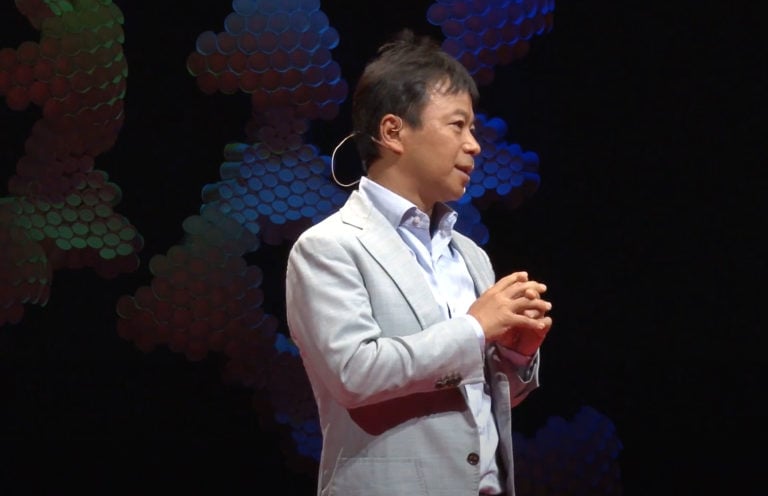Discovering Timeless Wisdom from Kurt Hahn
Spring Project Week is always an exciting and busy time for our students here at UWC ISAK Japan. However, during the most recent project week in March 2023, our Head of School, Malcolm McKenzie, took on a personal project: to sift through the abundance of writings and resources left behind by the founder of the UWC movement, Kurt Hahn, in order to share valuable insights with our community. We are proud to present Malcolm’s open letter to UWC ISAK Japan, which is packed with thought-provoking content that will encourage introspection and reflection. Join us as we embark on a journey of self-discovery, guided by the wisdom and brilliance of Kurt Hahn and the expertise of Malcolm.
I regard it as the foremost task of education to insure the survival of these qualities: an enterprising curiosity, an undefeatable spirit, tenacity in pursuit, readiness for sensible self denial, and above all, compassion.
This quotation from a speech by Kurt Hahn is on our UWC ISAK Japan website. And so it should be. Kurt Hahn was, as many of you know, a principal founder of the first UWC, Atlantic College in Wales. He was a German-born educator who lived from 1886 to 1974. Hahn founded many schools, and schools’ organizations. The Round Square association of about 250 schools worldwide, of which I used to be a Board Member and am now an appointed Honorary Member, is dedicated to the memory and the educational philosophy of Kurt Hahn. To my knowledge, some of the closest equivalents to Hahn in the early years of modern experiential education are the great educators and thinkers John Dewey in America and Zhang Boling in China. I promised you a short piece about Hahn as my Project for Project Week. Here it is.
The first school that Hahn founded was Schule Schloss Salem, in southern Germany, in 1920. In 1933, he was imprisoned by the Nazis as he had urged his students and young graduates to resist the growing power and reckless cruelty of Hitler. When he was released, he moved to the United Kingdom, where he started Gordonstoun School in Scotland. At Salem, Hahn developed a succinct set of guidelines for defining his school community. These he called The Seven Laws of Salem. They still exist there, in Hahn’s original writing. I remember the excitement with which I transcribed them into my personal notebook the first time I visited Salem School, many years ago. Here they are:
First Law: Give the children opportunities for self-discovery
Second Law: Make the children meet with triumph and defeat
Third Law: Give the children the opportunity of self-effacement in the common cause
Fourth Law: Provide periods of silence
Fifth Law: Train the imagination
Sixth Law: Make games important but not predominant
Seventh Law: Free the sons of the wealthy and powerful from the enervating sense of privilege
Every one of these ‘laws’ both deserves and rewards reflection. I want now to say just a little about three of them. I’ll leave the other 4 for you to contemplate on your own, or with friends.
Law number one is this:
Give the children opportunities for self-discovery
Hahn believed that young children are inherently curious and that, because of this, one crucial component of a progressive education is to allow their tendency to self-discovery to flourish. This injunction is connected to the brief comment in law number five on training the imagination. Self-discovery is the encouragement of a sense of agency that will allow young children to search imaginatively on their own for each one’s special and particular passions. Through this comes the discovery of self, each person’s unique identity. Hahn believed that we should all explore what he called our ‘grand passions’. It was this conviction that gave rise to the Extended Essay, Hahn’s contribution to the IBDP. Our UWC Project Weeks deliberately provide opportunities for us to pursue our passions.
Law number three is about working together:
Give the children the opportunity of self-effacement in the common cause
Hahn understood the value of working in teams, in ways where individual gratification is far less important than bonding collaboratively to ensure effective results in support of unifying causes and worthy projects. This ‘self-effacement’, or modesty, or humility, qualities that are the opposite of rampant individualism, are ones that Hahn believed to be crucial in the development of civil communities, both in schools and elsewhere. We would certainly benefit, in my opinion, from a lot more self-effacement in our contemporary world. There is way too much that draws attention to powerful and diverting characters, usually egotistically, and not nearly sufficient focus on the common causes that build and bind communities.
Hahn’s fourth law is short, sweet, and silent:
Provide periods of silence
Close to one hundred years ago, the visionary Hahn could see that modern living was being overrun by noise, and distracting speed. That insight has been made so much more relevant to our lives since the electronic, technological revolution of which so many humans are beneficiaries. How do we find poise, and quiet, in this rush of incessant imagery and surfeit of superficiality? How do we balance the undeniable benefits of information technology and social media with the never-ending demands that these benefits place upon us, and to which it is so easy to become addicted? Reflective periods of silence are vital, and more and more endangered. We do not protect and preserve silence nearly enough in our school. How often do we free ourselves from our digital devices and sit silently, contemplating or meditating? And how often do we miss opportunities for human contact and conversation because we eat, and meet, while glued to small screens.
But now back to the start:
I regard it as the foremost task of education to insure the survival of these qualities: an enterprising curiosity, an undefeatable spirit, tenacity in pursuit, readiness for sensible self denial, and above all, compassion.
In Hahn’s view, expressed many decades ago, these five qualities were under serious threat. I believe that they still are, and that their survival and nurturing are even more important now than they were then. However, it is sometimes challenging to understand exactly what Hahn means in the condensed and poetic phrases that are typical of his speech and writing. Here are my brief interpretations, in our UWC ISAK Japan context today, of what he might have meant.
An enterprising curiosity
We humans are an enterprising species. We like to apply our knowledge. We create businesses, we value entrepreneurship, we make things happen. Curiosity is good in and of itself, as it makes us ask questions and love learning, but it becomes doubly strong when it is allied to real life applications. This is the curiosity that is enhanced by enterprise. Given our special mission at UWC ISAK Japan, we might want to adjust this slightly, and speak of ‘an entrepreneurial curiosity’.
An undefeatable spirit
I love the notion of spirit that is undefeatable. Two of our contemporary terms for this quality are ‘resilience’ and ‘grit’. We know that humans have extraordinary capacities, when called upon, to persevere, sometimes in circumstances of unimaginable hardship. The migrant crises in some parts of the world right now are a sad but apt example of this spirit. In schools that are well-resourced, like ours, and where we all enjoy unusual privileges regardless of our backgrounds, we need to foster self-reliance and stamina. Cultivating an undefeatable spirit is admirable training for a life of good work.
Tenacity in pursuit
Tenacity is a tough, old-fashioned word. It refers to the capacity that some people have to hold fast, to hang on and not let go. It is the quality that dogs have when eating bones – dogged and determined. We need that quality as we pursue learning in all its forms, especially when the going gets rough.
Learning is not always fun. There are times when it is a hard slog. That’s when tenacity is so important.
Readiness for sensible self denial
Self denial is often associated with some types of religious austerity. Certain people choose to deny themselves the pleasures of a normal life. This is not what Hahn meant. Sensible self denial tells us not always to expect an easy or quick gratification of our wishes. There are times when we have to wait and there are many things worth waiting for. There are other times when we need to realize that denying ourselves might mean opening up possibilities and opportunities for others.
And, above all, compassion.
We know about compassion at and in our school. However young or old we are, we all need to learn and to continue learning how to think with our hearts and feel with our brains. Compassionate caring for others is one of the finest qualities of humankind. In the schools that he founded, students were trained in compassionate service, frequently through Rescue Services that were Hahn’s trademark. As he once said: “The passion of rescue reveals the highest dynamic of the human soul”. When I worked at Atlantic College, students were engaged every day in three Rescue Services: Sea Rescue, Cliff Rescue, and Beach Rescue. Over the years, Atlantic College students were credited with saving numerous lives along that dangerous stretch of Bristol Channel coastline which the college fronts.
Rescue does not need to be of the physical kind. If we learn to think and feel about compassion as the tendency, desire, and capability to rescue others who are in distress, of whatever kind, and if we practice that, then we will be growing and enhancing this essential quality in our lives. Remember: Above all, compassion.
And so, to conclude my Project for Project Week. If we dedicate ourselves anew to just a few of the ideals and ideas above, we will be honoring Hahn, a UWC founder. We will also be making the best use of the extraordinary privilege of a UWC education. It is entirely fitting that we make such a commitment in this the 60th Anniversary Year of our United World Colleges.
Sincerely,
Malcolm McKenzie




